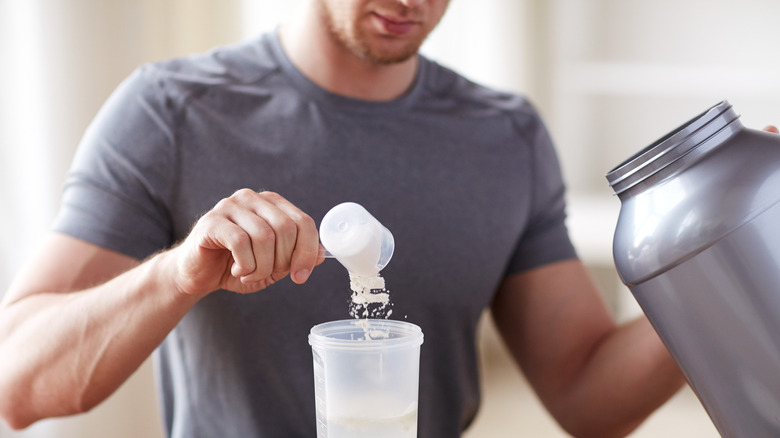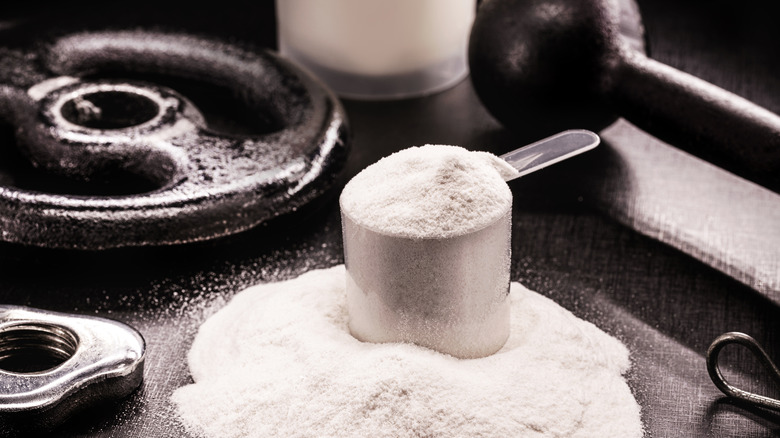Bodybuilders love supplementing with creatine to give their muscles a little more fuel to work out harder and add more muscle mass. Your body creates about a gram of creatine a day, and you can also get creatine from animal sources of protein. However, bodybuilders and athletes will take several grams of creatine a day to help with muscle performance and recovery.
One side effect of taking creatine is water retention because creatine pulls water into your muscles. “This added fluid can increase blood pressure in some people, though the data are inconclusive,” says Dr. Chris Mohr, a fitness and nutrition advisor for Fortune Recommends, in a Health Digest interview. “Many studies suggest no chronic effect, and individual variability should be considered.”
Mohr adds that you might see an increase in blood pressure as you build more lean body mass. “This is healthier than having more fat mass,” Mohr said. “It’s good to keep an eye on how your body reacts to supplements like creatine.” Although creatine is often taken to increase lean body tissue, it might help improve your cardiovascular health as well.
Creatine may improve vascular health
Creatine might work on other parts of the body aside from muscle tissue, including your brain. According to a 2020 review in Nutrients, creatine can increase blood flow to your limbs. Even if some people see an increase in blood pressure after taking creatine, some research has shown it could reduce post-exercise blood pressure. Creatine has antioxidant properties that help protect your body from damage caused by oxidative stress, which can lead to cardiovascular disease. Inflammation is another risk factor for cardiovascular disease, and creatine might reduce inflammation in your body.
Your heart is also a muscle, and people with heart failure might see a drop in creatine levels in their hearts. According to a 2021 article in Nutrients, clinical trials found that creatine supplements helped people with heart failure use oxygen more efficiently and improve muscular endurance. Improving muscular endurance and strength can help people with heart failure improve their quality of life. However, research is mixed on creatine’s ability to directly improve heart function.
Should you start taking creatine?
Creatine is generally safe if you follow the dosage instructions on the label of your supplement. Some people might take up to 20 grams of creatine a day for a week during their “loading phase” and then back off to 5 grams a day for maintenance (see whether creatine supplements are right for you). Dr. Chris Mohr advises checking with your doctor before you start taking creatine to make sure your medications don’t interact with creatine. Creatine can increase the blood levels of medications like entecavir and pemetrexed, which could increase the risk of side effects. Some workout supplements might have both creatine and caffeine, but caffeine reduces creatine’s effectiveness.
Mohr also suggests considering whether you need creatine supplementation at all. “Sometimes, just changing your diet or workout can give you similar benefits,” he said. “It’s important to consider diet first in conjunction with regular exercise because nothing will outweigh those necessary pieces.”
If you do decide to take creatine, Mohr recommends choosing a brand that’s been approved by NSF International, Informed Sport, or the US Pharmacopeia (USP). “These organizations make sure the supplement is pure and free from additives or contaminants,” he said.


